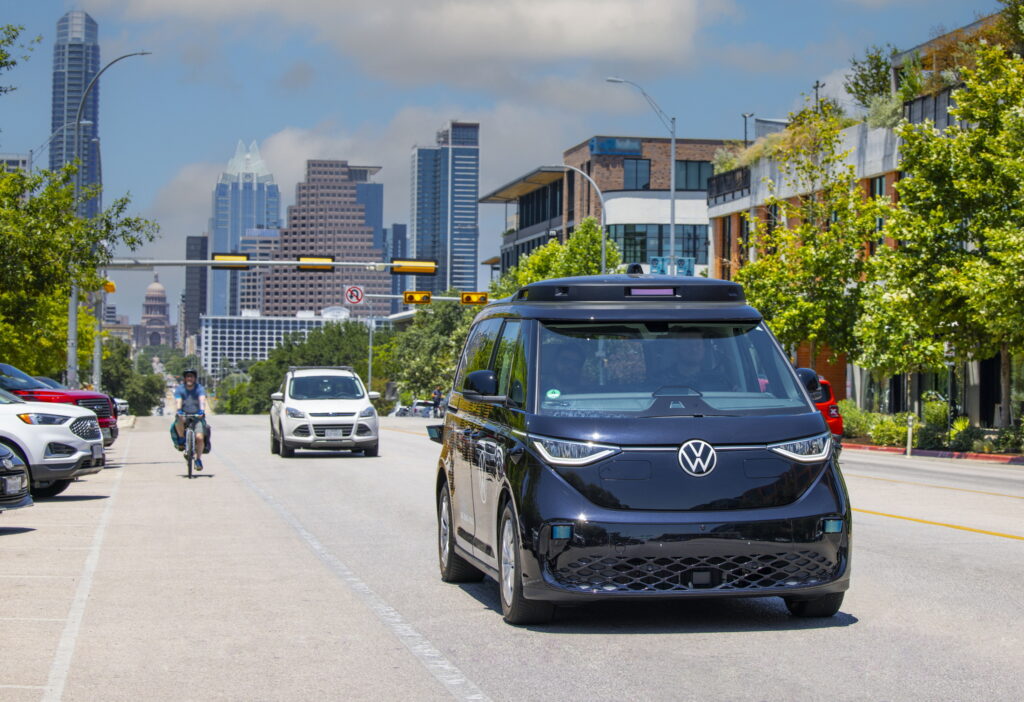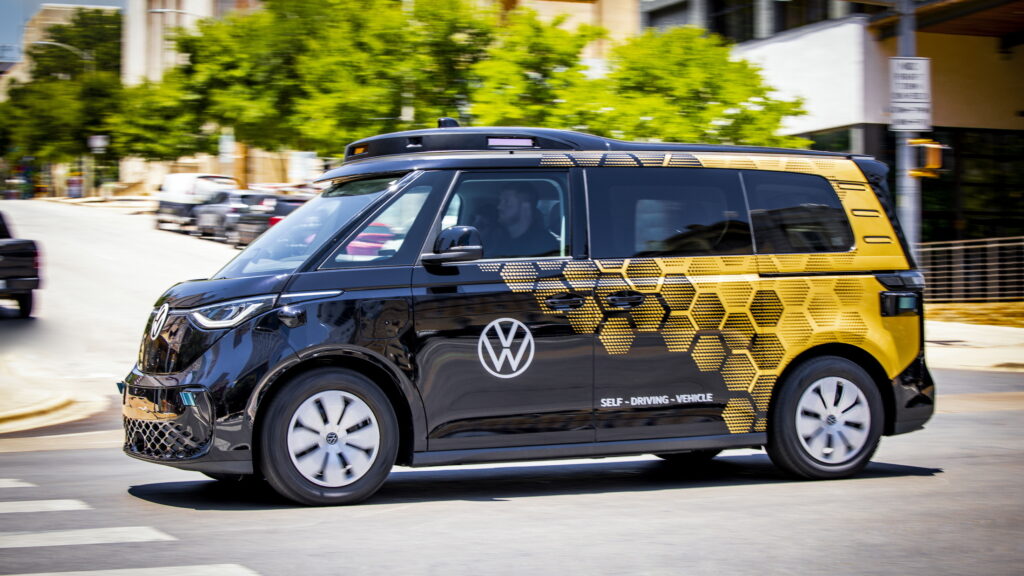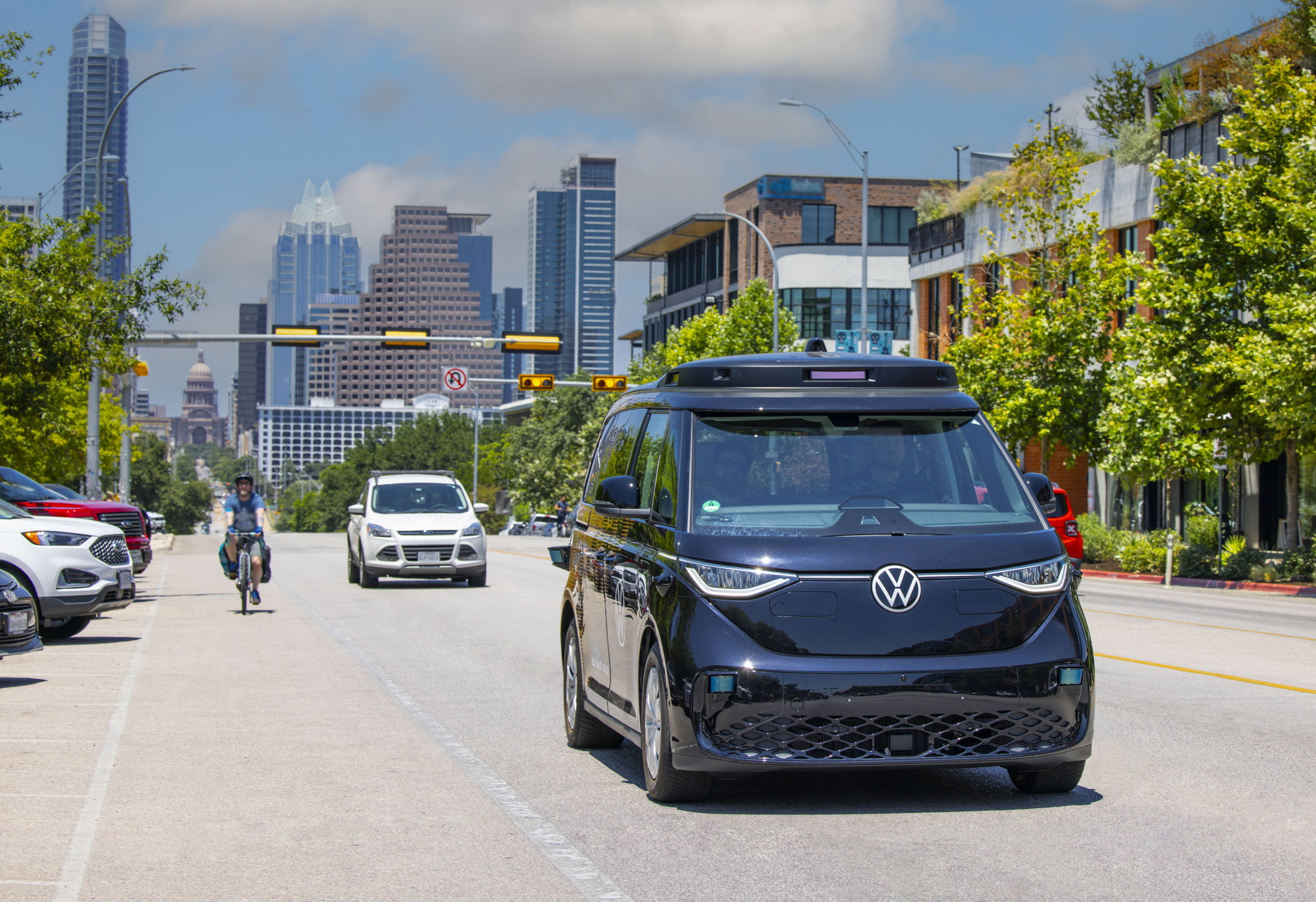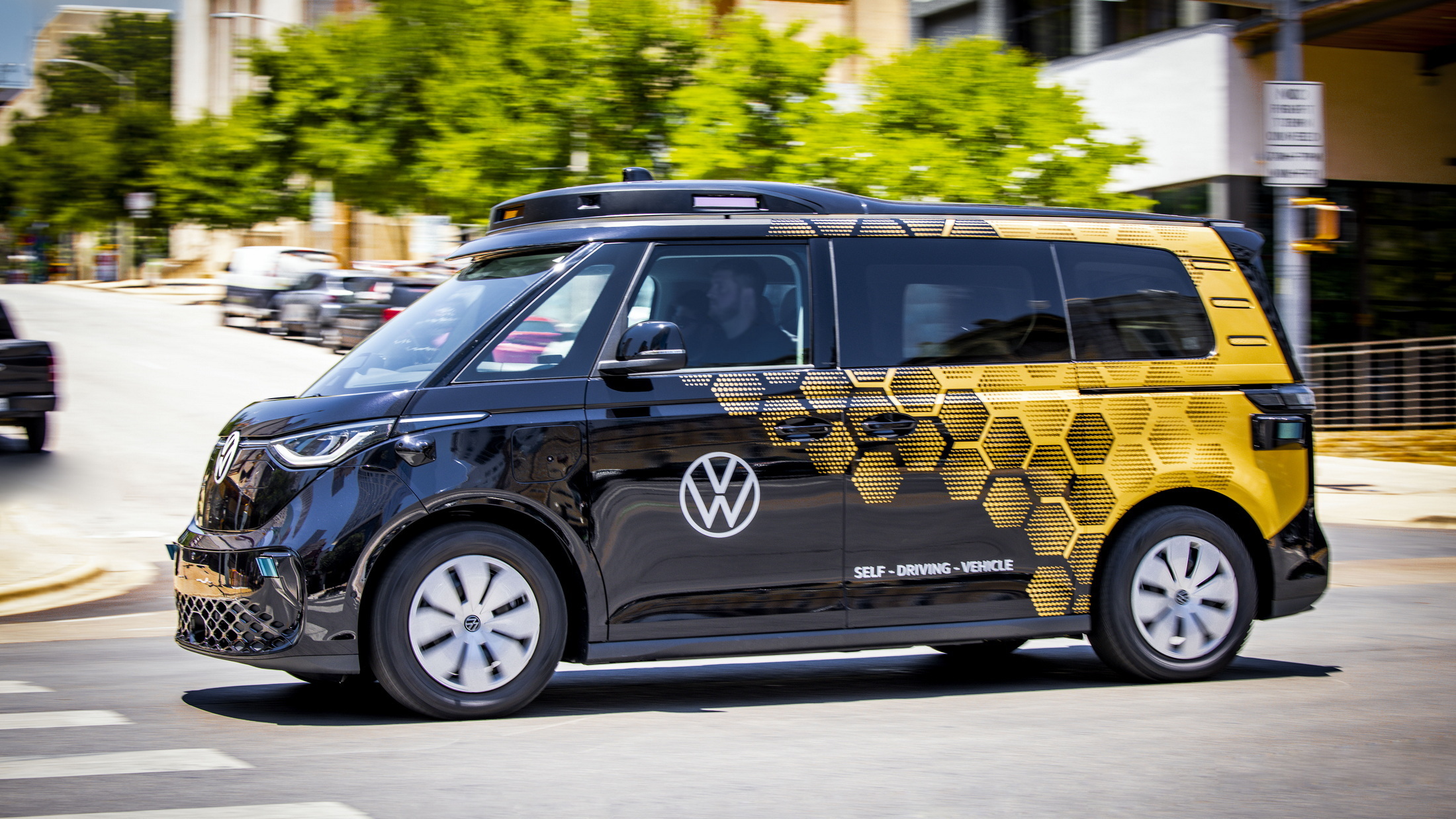A fleet of black and yellow Volkswagen ID. Buzzes is about to become a much more common sight in Austin, Texas. That’s because the automaker is using these 10 vehicles as part of its first autonomous vehicle test program in the U.S.
“We are thrilled to bring our exciting ID. Buzz vehicles to American roads,” said Pablo Di Si, President and CEO, Volkswagen Group of America. “Expanding Volkswagen Group’s global autonomous driving vehicle program to the United States marks an important milestone for us.”
The vehicles are equipped with autonomous driving software developed by VW, with the help of Mobileye. To help them navigate Austin’s streets, the Level 4 autonomous ID. Buzzes have a suite of cameras, radar sensors, and LiDAR sensors, as well as (for the first phase of testing, anyway) a human operator to bail them out in the event of trouble.
Read: 2025 VW ID. Buzz Lands In U.S. As A Long-Boy With More Power, More Seats, And More Battery

The latest push in Volkswagen’s global effort to develop autonomous driving technology, the company plans to use the ID. Buzzes to learn American driving styles and collect data. Over the next three years, it plans to grow the test fleet, and expand it to at least four other cities in the U.S.
By 2026, VW expects to be far enough along with the testing to launch commercial operations in Austin. The automaker is planning to offer its vehicles to companies in the mobility and transportation spaces. However, it does not plan to start its own ride hailing service at this time.
“Expanding our autonomous vehicle program to the North American Region is the next step in our global strategic roadmap, and the result of a long-term collaborative investment”, said Christian Senger, the head of VW’s global autonomous program. “Moving into this next phase will help us test, validate and refine technology, bring us closer to establishing commercially available transportation offerings and eventually grow the diverse mobility portfolio for the Volkswagen Group.”
Volkswagen will compete against companies like GM’s Cruise, Google’s Waymo, and others in developing autonomous vehicles for the U.S. market. However, those companies have a head start in terms of U.S. testing, having operated in cities like San Francisco and Las Vegas for several years now.












